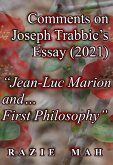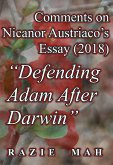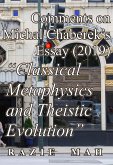Fr. Thomas Joseph White, O.P., is the author of several books, such as Wisdom in the Face of Modernity: A Study in Natural Philosophy (Sapientia Press, 2009), The Incarnate Lord: A Thomistic Study in Christology (UA Press, 2015) and Exodus (Brazos Press, 2016). In 2019, he writes an essay that goes "viral", in the specialized language of internet social media. So, how do I attribute the work to a journal or book? Is such an attribution necessary? Not in this case. Fr. White addresses a pivotal question, "Why does Thomism matter today?" If Christians are to sway the hearts and minds of the modern "not religious", then 'something' must address the mind. Thomism fits the bill, even though modernism, the Age of Ideas, appears to have completely displaced the scholasticism of the Latin Age. Consequently, the Thomism of the Latin Age may need a postmodern supplement, complement and, perhaps, intoxicant. How about techniques for synthetic thinking? Charles Peirce offers such techniques for such synthesis. These techniques entangle Thomism. These comments show how the Thomist tradition finds strange new realness in Peirce's approach. Should this be a surprise? The late Thomist John Deely discovers that Charles Peirce's definition of sign (formulated in the late 1800s) is the same as the one offered by John of St. Thomas (otherwise known as John Poinsot, writing in the mid 1600s). Indeed, Comments on Daniel Novotny's Book (2014) Ens Rationis, shows that the Baroque scholastics address postmodern topics, such as the difference between fact and fiction. Indeed, Novotny's line from Suarez to Caramuel is strangely familiar and funny, in the same way that postmodernism is comedic. So, pour a glass of wine and consider these comments, offered in the spirit of the new happiness.
Dieser Download kann aus rechtlichen Gründen nur mit Rechnungsadresse in A, B, CY, CZ, D, DK, EW, E, FIN, F, GR, H, IRL, I, LT, L, LR, M, NL, PL, P, R, S, SLO, SK ausgeliefert werden.









